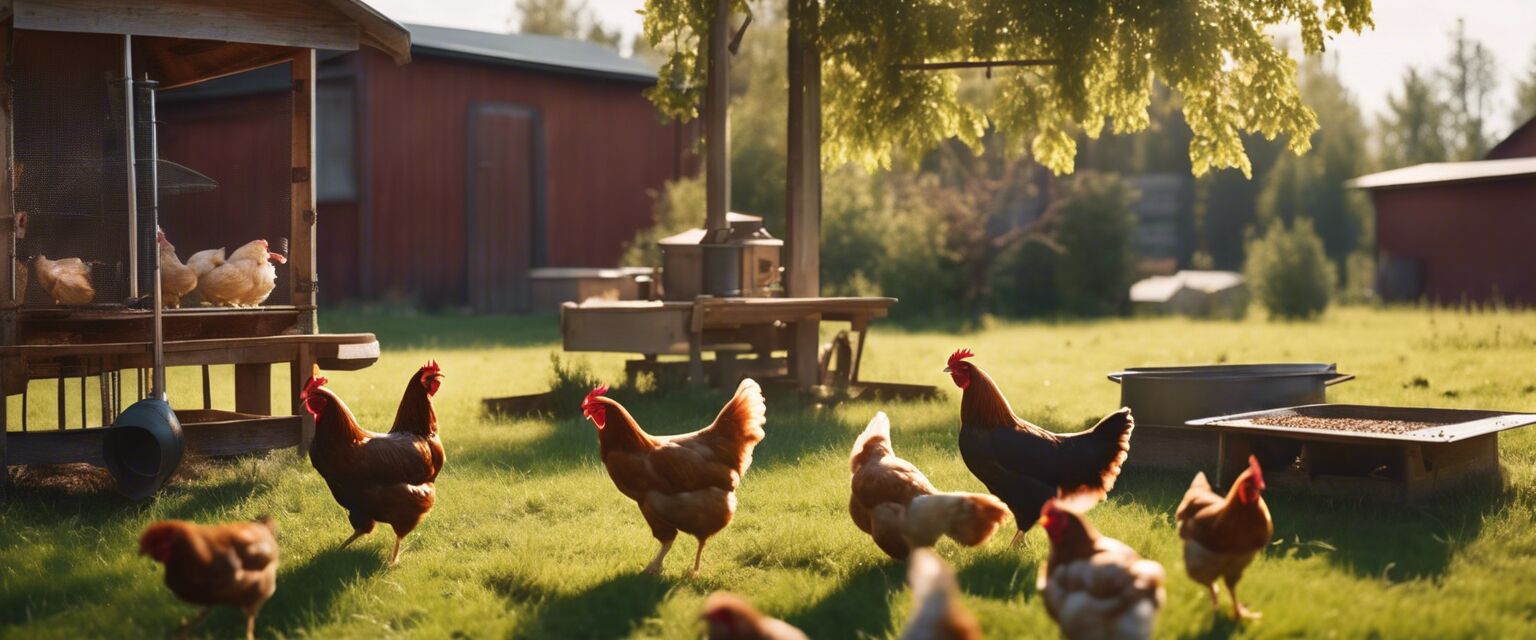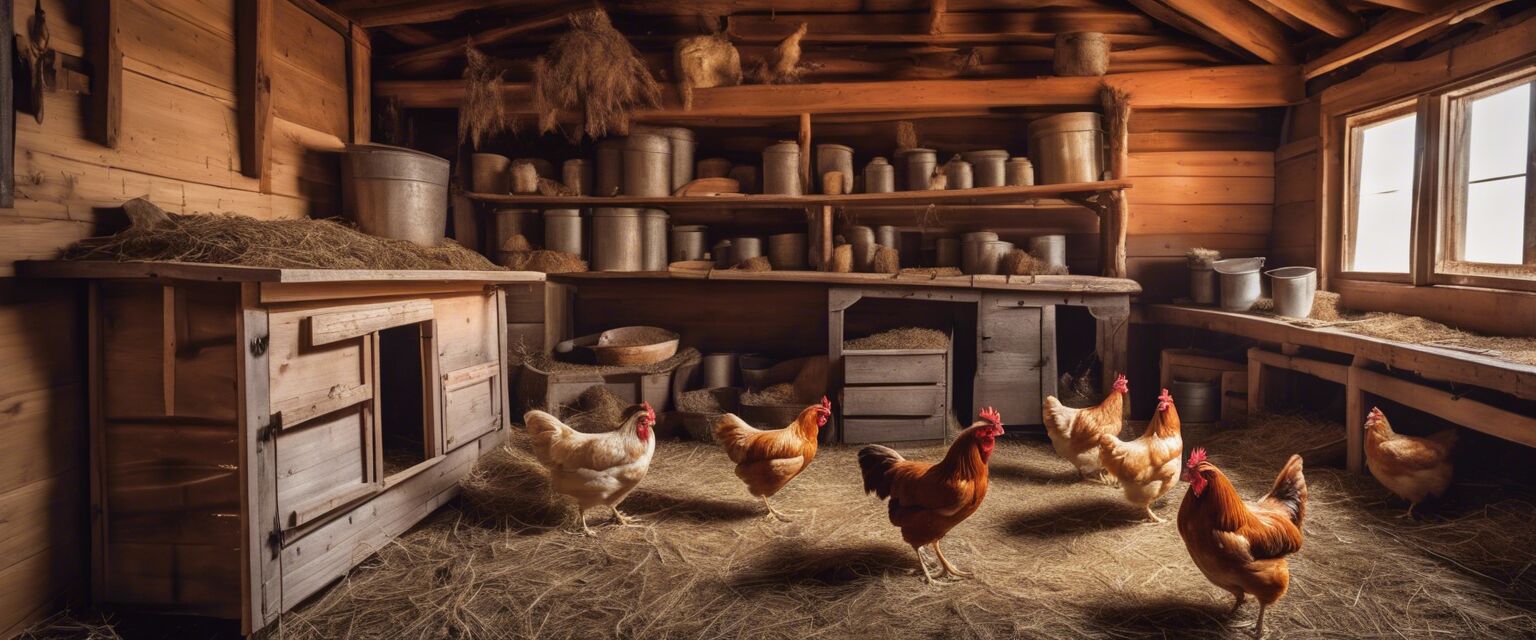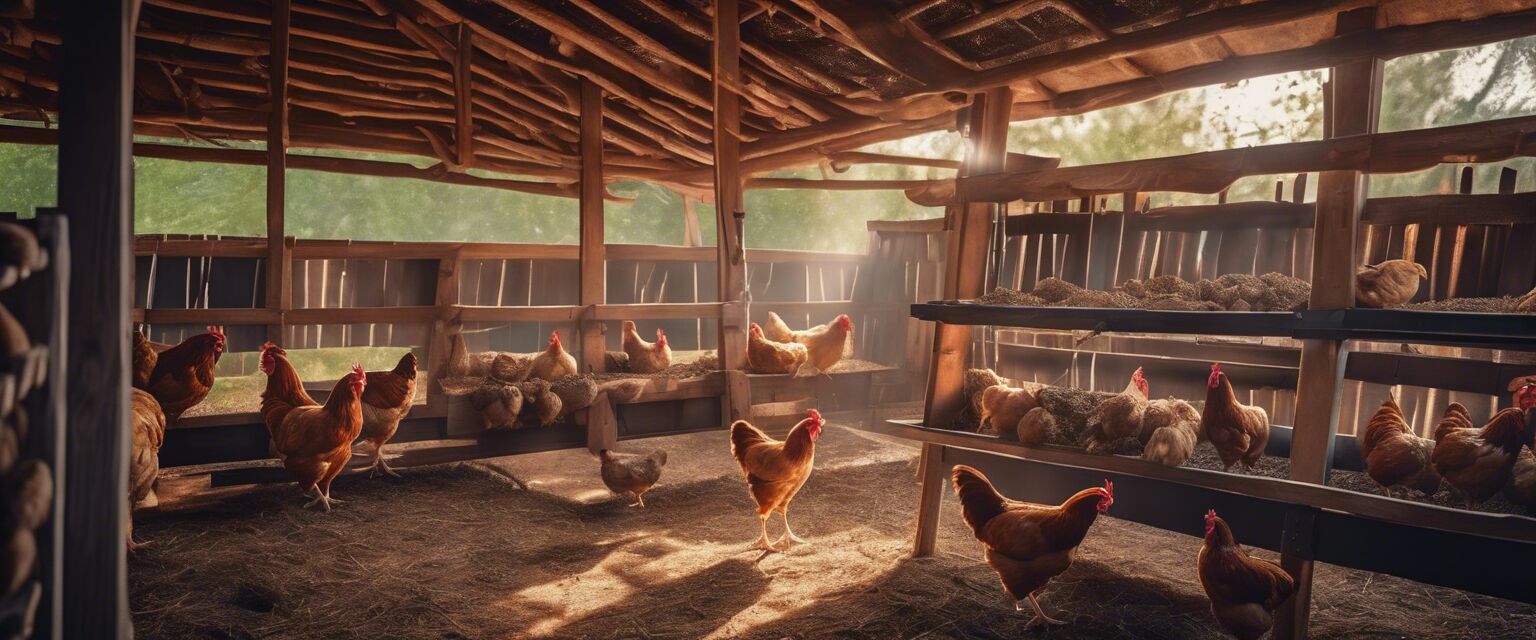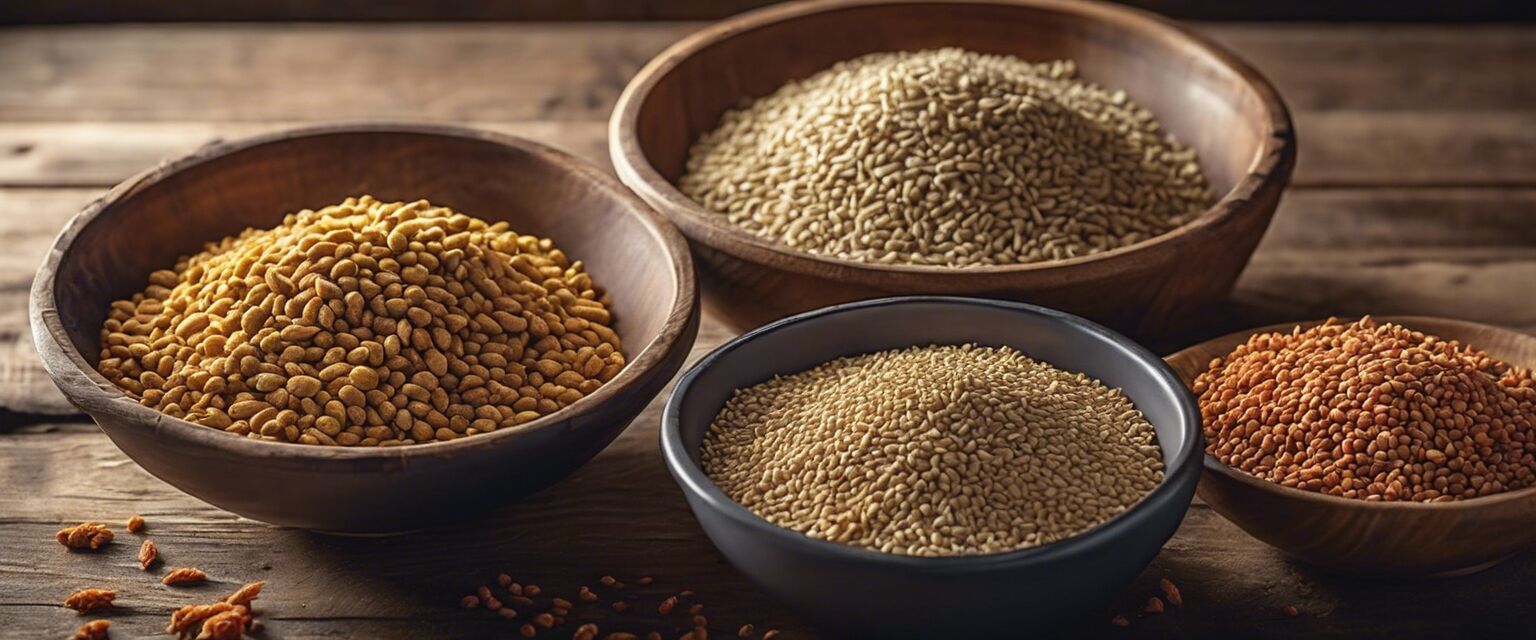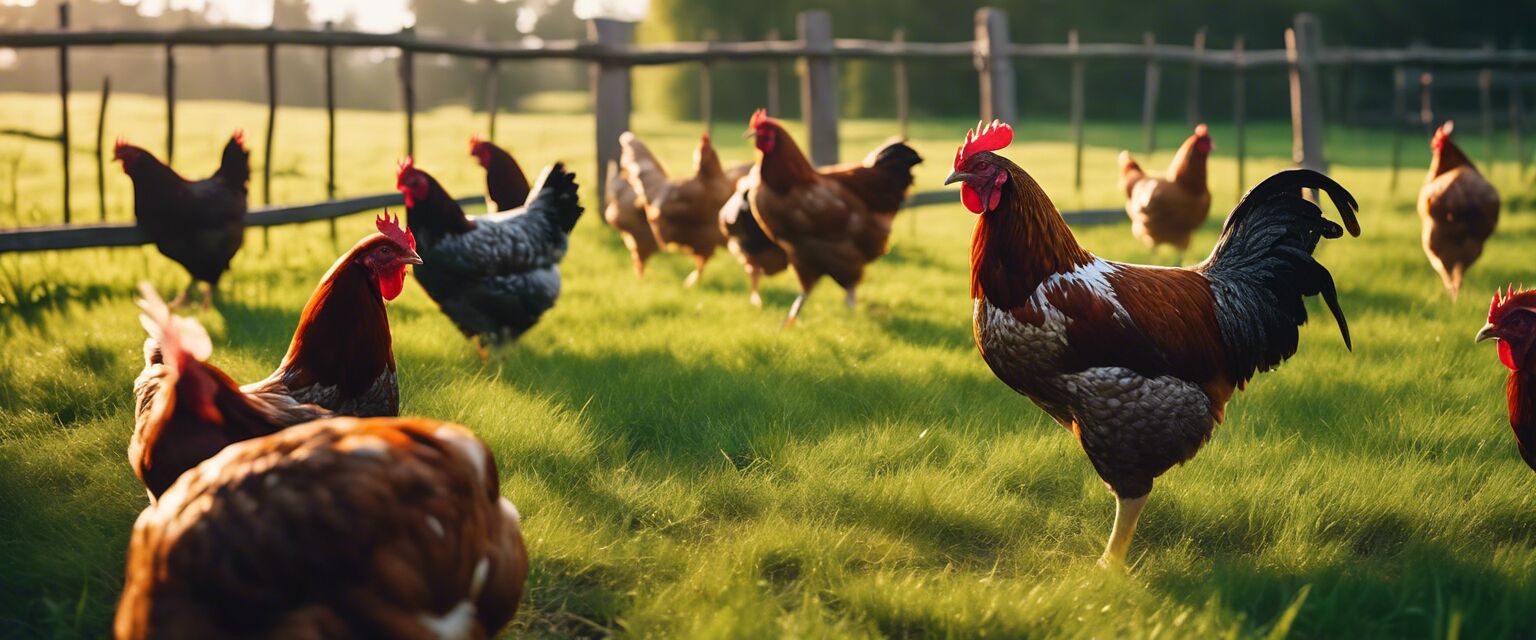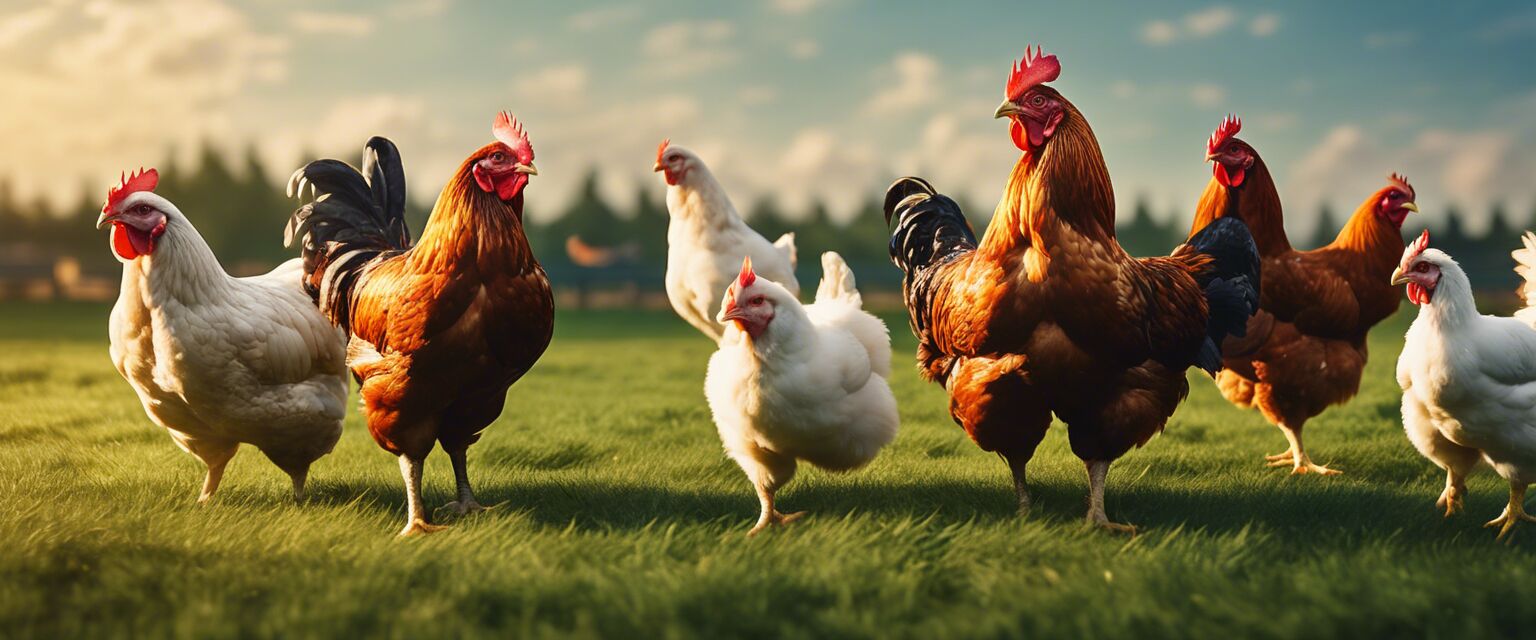
Chicken Health
Key Takeaways
- Understanding common chicken diseases helps in early detection.
- Preventive measures significantly enhance flock health.
- Regular health checks can save your flock from severe diseases.
- Know the treatment options for various ailments.
Welcome to our comprehensive guide on chicken health. In this article, we will explore common chicken diseases, prevention methods, and treatment options that can help you maintain a healthy flock. Understanding chicken health is crucial for any poultry enthusiast, whether you're raising chickens for eggs or meat.
Common chicken diseases
Chickens can be susceptible to a variety of diseases. Hereâs a table of some common diseases, their symptoms, and prevention methods:
| Disease | Symptoms | Prevention |
|---|---|---|
| Avian Influenza | Sudden death, coughing, and nasal discharge | Vaccination and biosecurity measures |
| Coccidiosis | Diarrhea, lethargy, and poor weight gain | Maintain clean coops and provide medicated feed |
| Newcastle Disease | Nasal discharge, respiratory distress | Vaccination and isolation of new birds |
| Fowl Pox | Lesions on skin and mucous membranes | Vaccination and vector control |
Preventive measures
Preventing diseases is more effective than treating them. Here are some essential preventive measures:
- Regular health checks for early detection of diseases.
- Maintain a clean and dry chicken coop to reduce disease spread.
- Provide a well-balanced diet to boost the immune system.
- Isolate sick birds to prevent the spread of illness.
- Vaccinate your flock against common diseases.
Signs of illness in chickens
Itâs essential to recognize the signs of illness in your chickens to ensure prompt action. Here are some symptoms to look for:
- Changes in eating habits
- Unusual vocalizations
- Isolation from the rest of the flock
- Changes in droppings (color, consistency, or amount)
- Fluffed feathers or visible lethargy
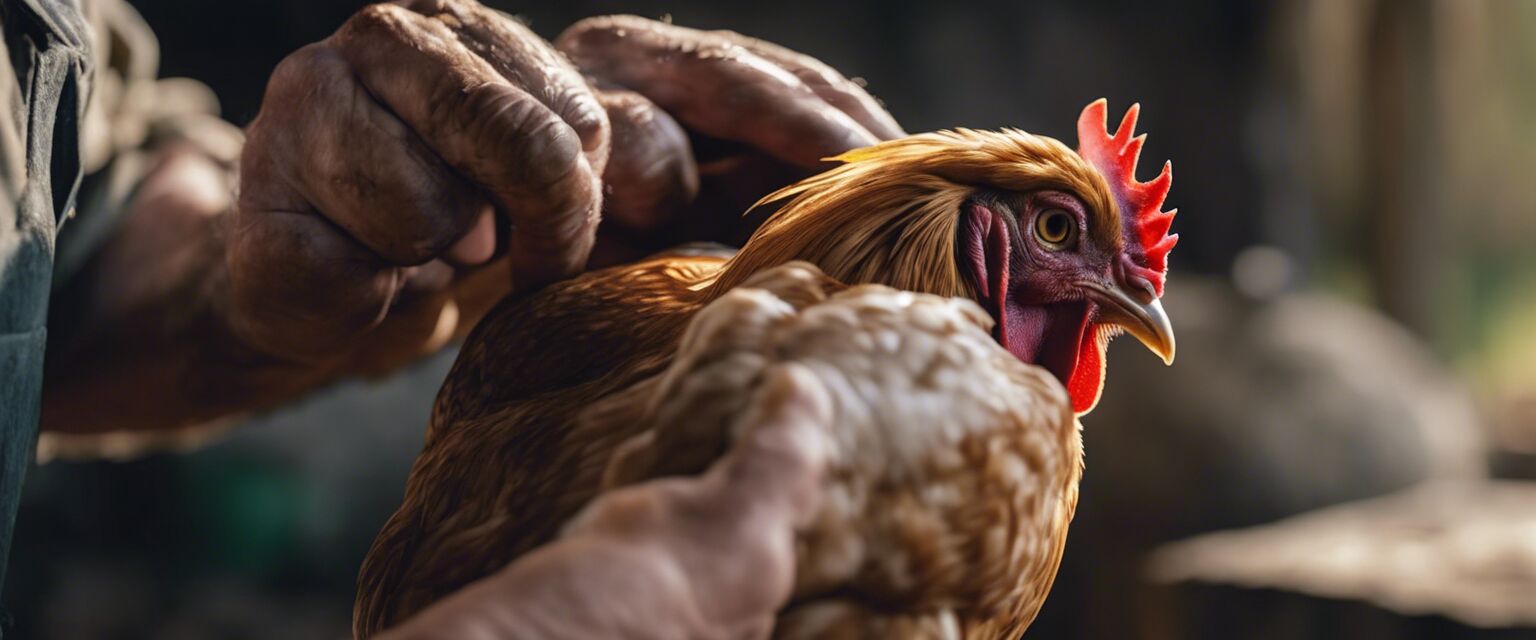
Treatment options
When your chickens fall ill, identifying the right treatment is crucial. Hereâs a detailed overview of treatment options:
Medications
There are various medications available for treating chicken diseases. It's important to consult a veterinarian for specific advice. Common treatments include:
- Antibiotics for bacterial infections
- Antiprotozoal medications for coccidiosis
- Vaccines for preventable viral diseases
Natural remedies
Some chicken owners prefer natural remedies to support health. Here are a few options:
- Apple cider vinegar mixed into drinking water for overall health
- Garlic for natural parasite control
Beginner tips for maintaining chicken health
- Start with a small flock and learn their behavior.
- Invest in a good quality chicken coop that allows for ventilation.
- Ensure access to fresh water at all times.
- Provide proper nesting boxes to encourage laying.
- Always do your research before introducing new birds to your flock.
Nutrition and feed for healthy chickens
The health of your chickens is heavily influenced by their diet. Below are the key components to consider:
| Feed Type | Description |
|---|---|
| Layer feed | High in calcium, specifically for laying hens. |
| Grower feed | Designed for young chickens to promote growth. |
| Scratch grains | A treat that provides energy but should not be the main diet. |
| Supplements | Vitamins and minerals added to enhance nutrition. |
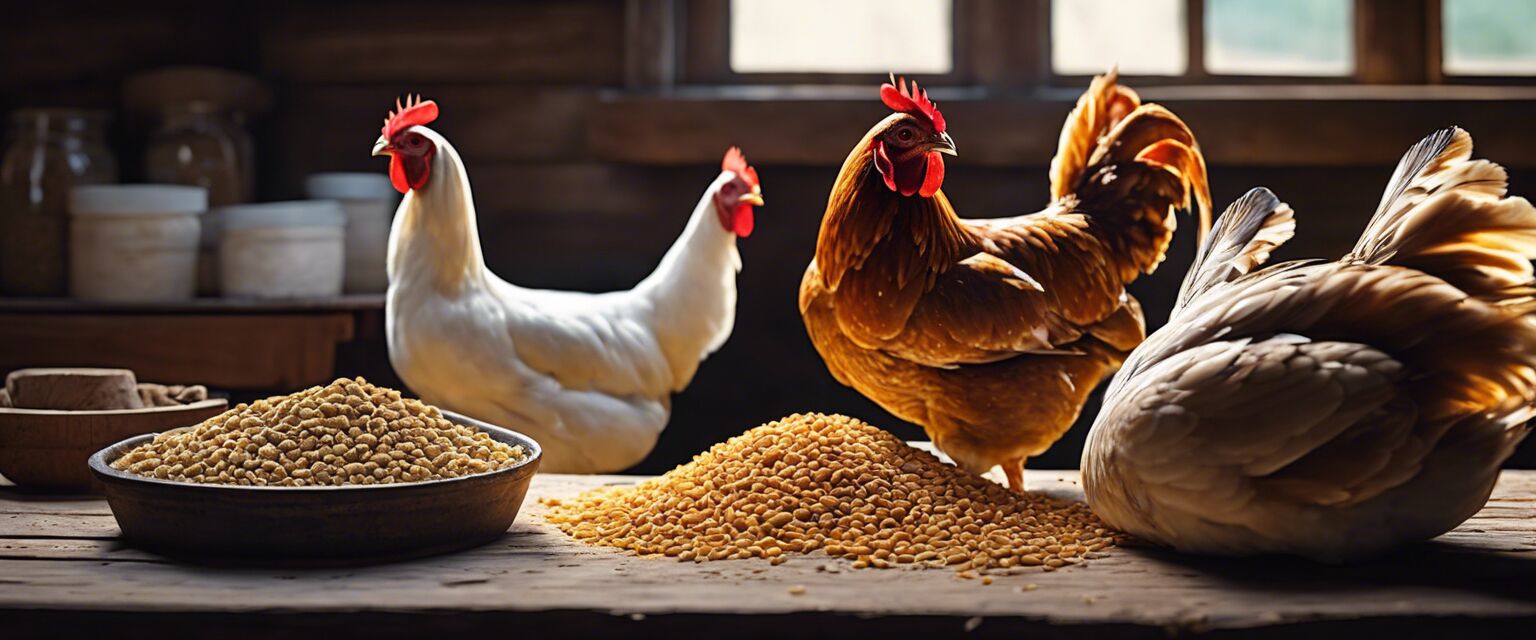
Conclusion
Being proactive about chicken health can help prevent diseases and ensure a thriving flock. By understanding common health issues, implementing preventive measures, and knowing the treatment options available, you can maintain your chickens' health effectively. For more information on chicken care, visit our Chicken Feed page for nutrition tips and our Chicken Coops page to ensure your chickens live in a safe environment.
Pros
- Healthy chickens produce more eggs.
- Reduces veterinary costs in the long run.
- Increases the lifespan of your flock.
Cons
- Requires time and effort to monitor health.
- Initial investment in quality feed and coops.
- Possible challenges in identifying diseases.
Further Resources
For additional information and resources on chicken health, check out our guides on Chicken Waterers, Nesting Boxes, and Coop Accessories.
